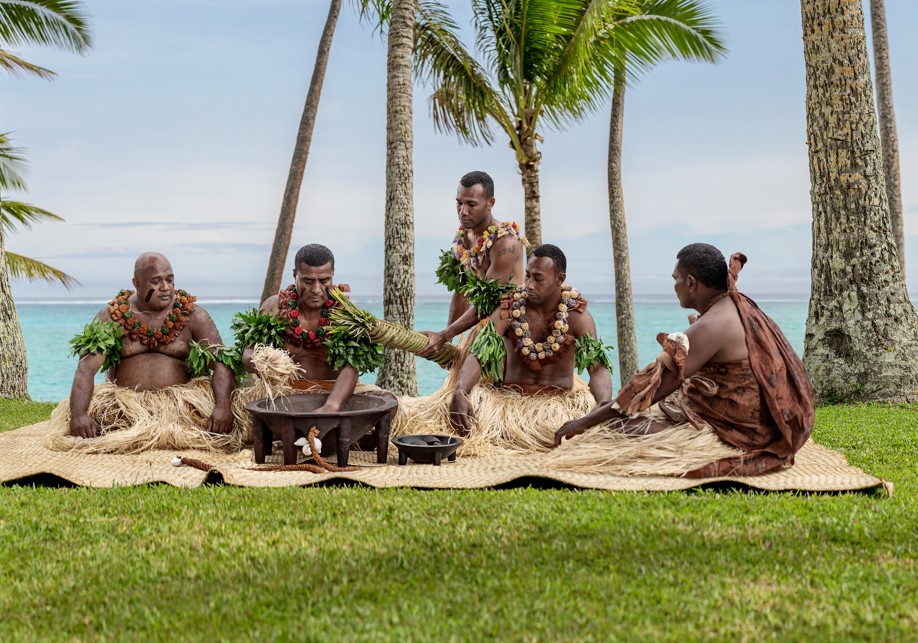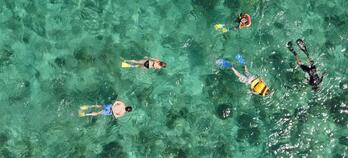
BULA! Have you been daydreaming of paddle-boarding on turquoise waters, lounging on white sandy beaches or lush green landscapes that beckon with adventure? Have you always wanted to experience Fiji but don’t want to feel like ‘just another tourist? Well, the Spacifica Travel Team have got your back, come learn the basics of “Na Vosa Vakaviti” (the Fijian language).
If the people are the HEART of their culture, then language is the SOUL of their culture. Knowing how to speak it is the key difference between “just visiting” Fiji and “being part of the ‘Vuvale’(family)!” So, let’s put our thinking hats on and learn how to pronounce “Ni sa Bula – Vinaka Vaka Levu - Sega na Leqa” without sounding like you’ve had too much to drink!
What makes Fijian so Unique?
Beyond the beautiful scenery and relaxing resorts lies a treasure that’s just as captivating: the Fijian language. Have you ever heard a conversation between Fijian locals in Na Vosa Vakavati? Imagine a language where the words reflect the natural environment and roll their way into your ears.
Thanks to its 5 vowels and 11 consonants, words can range from a thundering “BULA!” welcome, to a soft “Isa Lei” (Fijian farewell song) sang to you as you leave. The language is simple yet expressive, making it an absolute joy to speak and hear.
Some letters in Fijian are pronounced differently compared to Australian English, it does get a bit tricky, here is a few examples to try.
B is pronounced with an ‘m’ sound before the ‘b’ sound, as in ‘bamboo’. EG, mBula (silent M)
C is pronounced as ‘th’ as is ‘thanks’.
D is pronounced with an ‘n’ sound before the ‘d’ sound, as in ‘sand’.
G is pronounced as ‘ng’ as in ‘sang’ or ‘king’.
O is pronounced as in ‘chore‘.
A is pronounced as in ‘tap‘.
U is pronounced as in ‘too‘.
History, Heritage and Customs
 Na Vosa Vakavati isn’t just a way to communicate, it is what connects the people, traditions, and stories of all 300 islands. The key that unlocks the doors of their heritage and shows the vibrant tapestry of their people through song and language. Their stories aren’t just told, they are celebrated! From oral legends passed down through generations to the lively storytelling during traditional ceremonies.
Na Vosa Vakavati isn’t just a way to communicate, it is what connects the people, traditions, and stories of all 300 islands. The key that unlocks the doors of their heritage and shows the vibrant tapestry of their people through song and language. Their stories aren’t just told, they are celebrated! From oral legends passed down through generations to the lively storytelling during traditional ceremonies.
Take the yaqona ceremony, for instance. This is a sacred ritual of kava drinking, steeped in tradition and is often accompanied by chants and greetings in Fijian. As friends and family gather, the air fills with laughter, stories, and, of course, the fun of the Fijian language. It’s a heartfelt reminder that language is a bridge, bringing people together and strengthening community bonds.
While English is commonly spoken in Fiji, you might want to learn a few common words and phrases to help you get around with the locals. Na Vosa Vakavati is spoken alongside English and Fijian Hindi. It’s the first language of around 350,000 people (over half of the population) and the second language of over 200,000 people.
Useful phrases -
Yes Io (‘ee-oh’)
No Sega (Seng-ah)
Take your time / “Island Time” Vaka Malua
Good/Thank you Vinaka
Thank you very much Vinaka vaka-levu
No Worries Sega na lega (Sang a na lang a)
Embrace the Journey
The Fijian language is a celebration of identity and culture, more than just a means of communication; it’s a living, breathing expression of the Fijian spirit. By embracing the language, we honour its beauty but also join the tradition of the land.
So, are you ready to dive into the magical world of Fiji? Let’s celebrate its melodies, stories, and the warmth of its people. With every word you learn, you’ll find yourself drawn closer to the heart of Fiji, where the language is a treasure waiting to be discovered. Bula Vinaka! You can find lots of great deals to Fiji here, and if you are stuck for ideas of what else to do in Fiji, check out our other blogs here!
Travel to Fiji with Spacifica Travel
If you’re ready to travel to Fiji and plan your next holiday, contact the team at Spacifica Travel to help. You’ll be saying “Bula!” before you know it.
Photos courtesy of Fiji Tourism.



